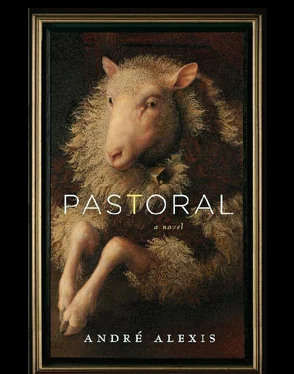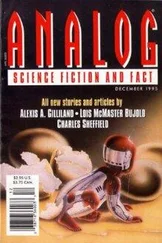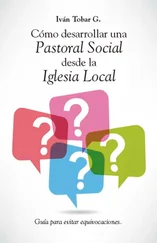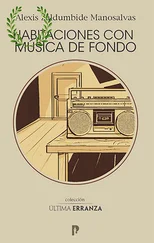— I will.
They exchanged rings. Father Pennant spoke again, facing Robert.
— You may now kiss the bride, he said.
Which Robert did, his lips on hers feeling, to her, like warm, soft rubber, behind which were his teeth. Then, the music sounded and all those in the church rose to applaud. All approved. All were happy, though in the midst of that happiness was Elizabeth herself: bewildered, married to someone she no longer loved, her husband.
The bride and groom, priest and witnesses, retired to the vestry where, on a table, there was the book they were to sign and two lit candles. Robert was ecstatic or, simply, relieved. His grin was unreadable. Someone took a picture as he signed his name in the registry. As Robert signed and as the picture was taken, Elizabeth’s attention was drawn by one of the candles. It was nondescript, as far as candles go: six or seven inches tall, three inches in diameter. The flame danced as candle flames will, but Elizabeth was mesmerized by it, by the way it fluttered, the flame itself suggesting something solid and thick. No wonder, she thought, the ancients compared flame to a bird.
Gently, Father Pennant said
— Elizabeth?
— Yes? she answered.
— Your turn to sign the registry.
Robert kissed the side of her head as she signed the book. Then, as suddenly as it had begun, the ceremony was over. Back down the aisle she went, with her arm in Robert’s while, outside the church, a crowd waited to cheer and throw rice.
It was odd to be in a field in her wedding dress, but she had agreed to keep the dress on so people could take pictures of the bride. As the reception was in a field at the Biglands’, however, a field normally occupied by sheep, she longed to be in something less delicate. Also, given her ambivalence about her husband, she did not want to be in the dress any longer than she had to. It seemed there were hundreds of people with her, dozens who wanted pictures: friends, family, Barrownians, the human parameters of her world.
Everyone seemed genuinely pleased by the wedding they’d witnessed: her wedding. She was congratulated, endlessly. Her dress was admired. Her radiance was remarked on. All the while, as if they were now indissociable, Robert stood beside her, holding her hand, kissing her whenever people asked to take a photo. Robert’s family was as thrilled as her own. Some had come from as far away as Winnipeg. One of his uncles, the one who had patted her behind, had come from Ocala, Florida.
In all of this, it was difficult for her to figure out what Robert felt about their wedding. Did he realize she did not love him? Did that matter? To break the smile on his face, you would have had to hit it with a hammer. It was possible, wasn’t it, that this smile hid his indifference to her? She would have to wait until later to hear what he said. She would know his feelings that night, their wedding night, when they would sleep together as husband and wife for the first time. She did not know how he felt about it, but just about the last thing she wanted from him was sex. They would have to make love at some point, if only to mark the occasion, but she did not know how she would react to his touch. Before this day, she had always — mostly always — enjoyed their lovemaking. It was strange that the very idea should become a problem on the one day when it should have been a consecration of their feelings. But she had married him. She had said yes. She had not stood him up. She had not told the truth about her feelings. Perhaps, now, this feeling of alienation would be the principal one, the one fact of their marriage. For a moment, as she looked at her husband and then at all the smiling people around him, she felt a monumental bitterness, a bitterness so deep it could sweep the world away or, at least, make everything in it unbearable. Her own smile felt like a small handkerchief held up before her naked body. Almost in self-defence, she took her husband’s hand and kissed his lips. The people around them laughed. Mr. Bigland said
— Save it for the motel.
Could he really be drunk so soon?
Her wedding was what gossipmongers would call a lavish occasion. The food was still being cooked and put on the long tables. It seemed everyone in Barrow had contributed something. There was more gelatin, more flavours and varieties of gelatin, than you could easily keep in memory: red gelatin with bits of slaw and carrots suspended within, a yellow gelatin with pineapple pieces, an orange one in which something was suspended like smoke in a small sunlit room. There were pots of potato salad with its yellowish mayonnaise and bowls of greens. Beside the tables, at a slight remove, a barbecue pit had been dug. In it a whole pig was roasting, its blackened corpse continually turned and faithfully doused with a barbecue sauce that smelled of molasses, mustard and oranges. Beyond the barbecue, parts of a cow were being cooked and roasted on a black grill from which plumes of smoke rose. Also, there were drinks. Bottles of alcohol: rum, gin, vodka, beer, scotch, rye and, though no one in town liked it much, wine. There was also, of course, champagne and, as almost everyone had had a glass, Elizabeth had one too. It tasted like a fizzy vinaigrette in which someone had dropped sugar and pieces of apple.
Finally, at its own table apart from the others, there was her wedding cake. It was odd to see it here, in a field, beneath a white canopy. It was tall and magnificent. All the affection John Harrington had for her had gone into its making. The details, the florettes and silhouettes, were precisely done. You could smell the marzipan from a distance away, as if the cake were an almond censer. Impressive and elegant, it suggested great love and it was for this reason that, seeing it here, in this still-green field, Elizabeth began to cry. How inadequate and petty her feelings were, compared to the deep feelings Mr. Harrington’s patience and kindness were meant to celebrate.
Her aunt Anne was beside her in an instant, holding her hand and wiping the tears from her face, as if Elizabeth were still a child and homeless as she had been at her parents’ death. Though she did not want to upset Elizabeth further, her aunt also began to cry, as quietly as she could, overcome by the thought of her child, and in the end Elizabeth was her child, leaving, happily married, as she imagined.
— Is everything all right? someone asked.
— Yes, yes, someone else answered. It’s tears of joy.
And before Elizabeth knew it, she and her aunt were surrounded by cooing friends, all congratulating her on her happiness.
At some point, Elizabeth imagined she understood the meaning of the day. She and Robert, at the centre of this maelstrom, were being made to feel the magnitude of all this, the wedding and the reception. And it suddenly occurred to her that a wedding was like a train wreck or an inner-city mugging, a fall from a survivable height or a near drowning. It was a trauma that would — that was meant to — bring them closer.
After the meal, Elizabeth had at last gone in to change her clothes. Her suitcases were packed. She and Robert were off to England, to the Lake District, where Robert’s family had come from three hundred years previously. Some of Elizabeth’s people had also been English and had come from a place in Suffolk (mythic, in her imagination) called Snape. But her English relatives, once they reached the New World, had intermingled and intermarried, so that Elizabeth was more French Canadian or Native Canadian than she was anything else.
After changing clothes, Elizabeth and Robert danced for the guests. They danced in the field, as the embers used to cook the pig darkened to black. For the bride and groom’s final dance, the band from Glencoe played something that sounded Celtic. And it pleased her to dance. There was meaning to all this too: the association of man and woman in dancing was itself a kind of matrimony, two and two, a necessary conjunction, holding each other by the hand or the arm in concord. For a moment, dancing with Robert, she was happy. Not that she suddenly loved him, but she liked him, because he did not mind dancing, because he was not a wilfully cruel man, because he loved his family and because, in the end, she believed he loved her. And because she was happy, she stopped worrying about their future.
Читать дальше












